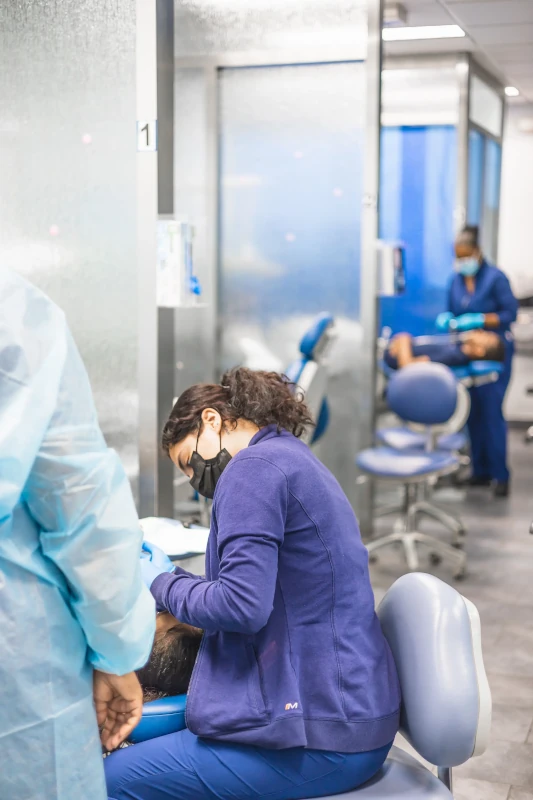Post
8 Common Reasons People Fear the Dentist and How to Overcome Them
For many, a visit to the dentist in 10458 induces feelings of dread and anxiety. The mere thought of sitting in the dentist's chair can send shivers down the spine. But why does the dentist evoke such fear in so many people? Let’s explore the most common reasons behind dental anxiety and explore strategies to overcome it, paving the way for a stress-free dental experience.
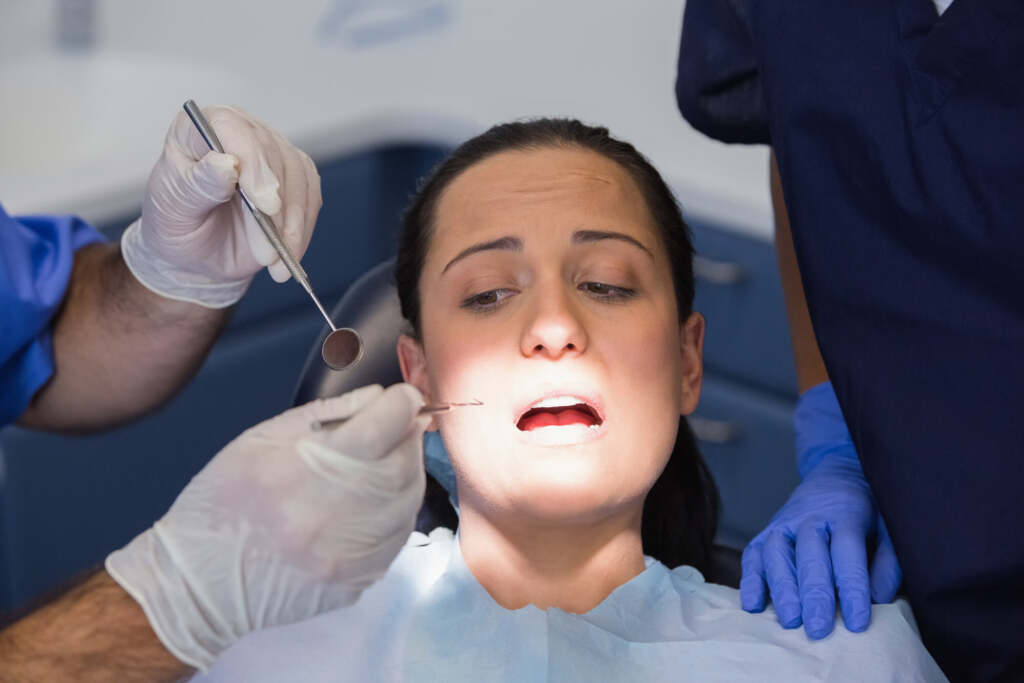
Understanding Dental Anxiety
Dental anxiety, also known as dental phobia or fear of the dentist, is a psychological condition characterized by intense fear or apprehension associated with dental visits and procedures. It is a common issue that affects people of all ages and can range from mild uneasiness to severe panic attacks.
Symptoms of Dental Anxiety
The symptoms of dental anxiety can vary from person to person but often include:
- Increased Heart Rate: People experiencing dental anxiety may notice their heart racing or palpitations as they approach their dental appointment.
- Sweating: Profuse sweating, particularly on the palms or forehead, is a common symptom of dental anxiety.
- Tension or Muscle Tightness: Some people may experience muscle tension, particularly in the jaw or shoulders, as a result of dental anxiety.
- Nervousness or Irritability: Feelings of nervousness, restlessness, or irritability are common psychological symptoms of dental anxiety.
- Panic Attacks: In severe cases, dental anxiety can trigger panic attacks characterized by intense fear, shortness of breath, chest pain, and a sense of impending doom.
- Avoidance Behavior: Individuals with dental anxiety may go to great lengths to avoid dental appointments altogether, putting their oral health at risk.
As you can see, dental anxiety goes beyond simply not liking going to the dentist or feeling the regular nervousness associated with medical appointments. It can manifest in a variety of physical and psychological symptoms that can significantly impact a person's well-being and oral health.
What Are the Most Common Reasons for Dental Anxiety?
1. Fear of Pain
One of the most common reasons people fear going to the dentist is the anticipation of pain. This fear may stem from past experiences of discomfort or pain during dental procedures. Even though modern dentistry has advanced significantly, the fear of pain persists due to the association with memories or stories from others.
2. Fear of Needles and Injections
Many dental procedures involve the use of needles and injections for anesthesia. Fear of needles can lead to heightened anxiety or even avoidance of dental visits. The fear may arise from a negative experience with injections or a general discomfort with the idea of needles penetrating the skin.
3. Fear of Loss of Control
Dental procedures often require patients to sit still for extended periods while someone else works in their mouth. This loss of control can be unsettling for some people, leading to feelings of vulnerability and anxiety. Fear of not being able to communicate or feeling trapped during the procedure can contribute to dental anxiety.
4. Fear of Embarrassment
Dental anxiety can also be triggered by feelings of embarrassment or self-consciousness about the condition of one's teeth and gums. People may worry about being judged by the dentist or dental staff for neglecting their oral health or having visible dental problems. This fear of judgment can prevent people from seeking necessary dental care.
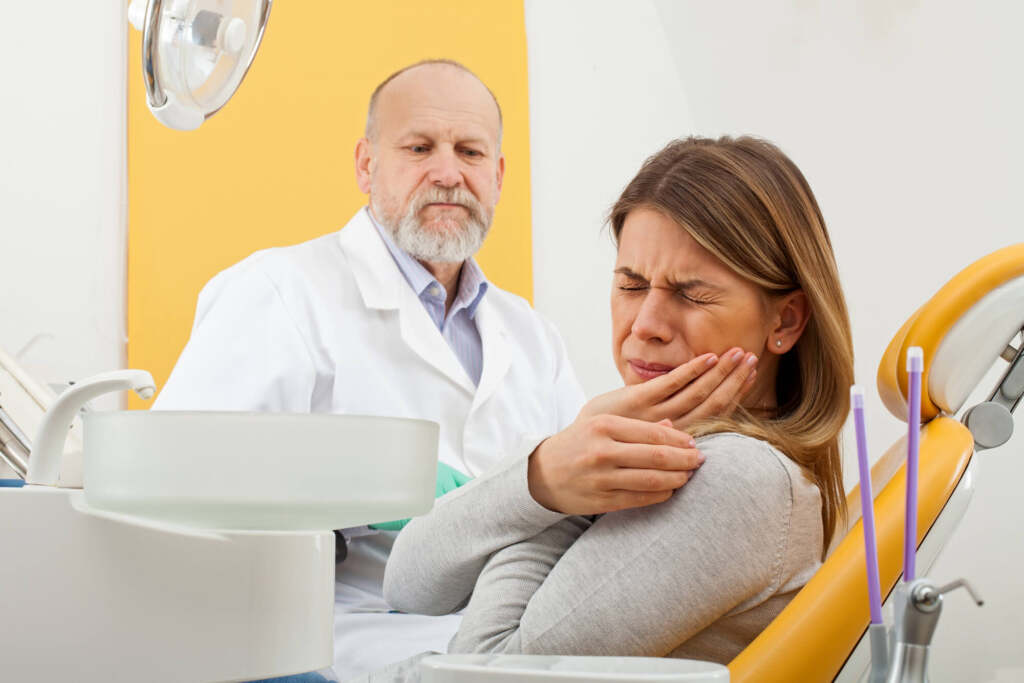
5. Previous Traumatic Experiences
Past traumatic experiences at the dentist, such as a painful procedure or a perceived lack of empathy from the dental team, can significantly impact a person's perception of dental visits. These negative experiences may lead to lasting fear and avoidance behavior when it comes to dental care.
6. Fear of the Unknown
Uncertainty about the outcome of dental procedures or unfamiliarity with the tools and equipment used in the dental office can contribute to anxiety. People may fear the unknown aspects of dental treatment, including potential complications or unexpected sensations during procedures.
7. Sensory Sensitivity
Some individuals have a heightened sensitivity to sensory stimuli, such as the sights, sounds, and smells commonly associated with dental clinics. The sound of dental drills or the sensation of dental instruments in the mouth can be overwhelming for people with sensory sensitivities, leading to increased anxiety.
8. Claustrophobia
For people with claustrophobia, the confined space of the dental chair and the proximity of the dental team can trigger feelings of panic and discomfort. The sensation of being enclosed or trapped in the dental chair can exacerbate anxiety and make dental visits challenging for those with claustrophobic tendencies.
What Can You Do About Dental Anxiety?
Research Sedation Dentistry Options
If you experience significant anxiety or fear about dental visits, consider exploring sedation dentistry options. Sedation techniques such as nitrous oxide (laughing gas), oral sedatives, or intravenous (IV) sedation can help you relax during dental procedures. Discuss these options with your dentist in 10458 to determine the most suitable sedation method.
Schedule an Informative Consultation
Before your dental appointment, schedule a consultation with your dentist to discuss your concerns and fears. Use this opportunity to ask questions about the upcoming procedure, express any anxieties you may have, and explore strategies for managing your dental anxiety. A thorough discussion with your dentist can help alleviate apprehensions and build trust.
Request Breaks During Procedures
If you anticipate feeling overwhelmed during longer dental procedures, don't hesitate to request breaks as needed. Agree on a signal with your dentist in 10458 beforehand to indicate when you require a pause. Taking short breaks can help you regain composure and feel more in control during the treatment process.
Bring a Supportive Companion
Consider bringing a trusted friend or family member to accompany you to your dental appointment for moral support. Having someone familiar by your side can provide comfort and reassurance during the visit. Your companion can also help communicate your needs and concerns to the dental team if necessary.
Consider Pre-Medication
If your anxiety is particularly severe, discuss the possibility of pre-medication with your dentist. Pre-medication involves taking an anti-anxiety medication before your appointment to help you feel more relaxed and comfortable during the procedure. Your dentist can provide guidance on appropriate medications and dosages based on your individual needs.

Ready to Schedule an Appointment with a Dentist in 10458?
At Perfect Smile Doc, your comfort and trust are our top priorities. We understand that dental anxiety can be challenging, but we're here to support you every step of the way. Don't let fear hold you back from achieving the smile you deserve. Contact us today to schedule a consultation and let us address any fears or concerns you may have.
Not Sure if You’re Covered?
Your Perfect Smile is within reach, and we're here to help you every step of the way. We can streamline the process for you by contacting your insurance company and acquiring a detailed breakdown of your specific plan information. Let us take the guesswork out of navigating insurance and payment options.
Learn More
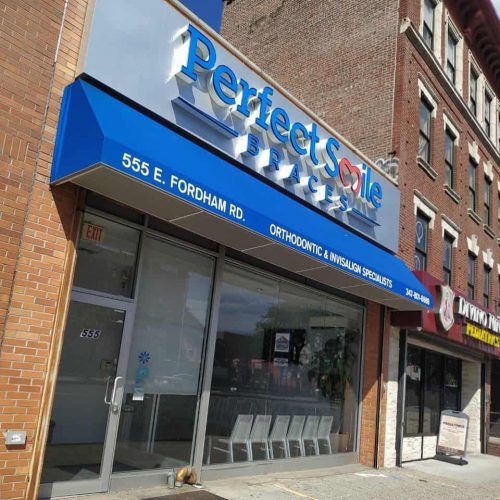
555 E FORDHAM RD BRONX, NY 10458
MONDAY TO FRIDAY 9:00 AM – 6:00 PM
SATURDAY 8:00 AM – 2:30 PM
B
D
4
Bx12
Bx12+
Bx9
Bx15
Bx17
Bx22
Bx41
Bx34 B Bx1
Bx2
BxM4
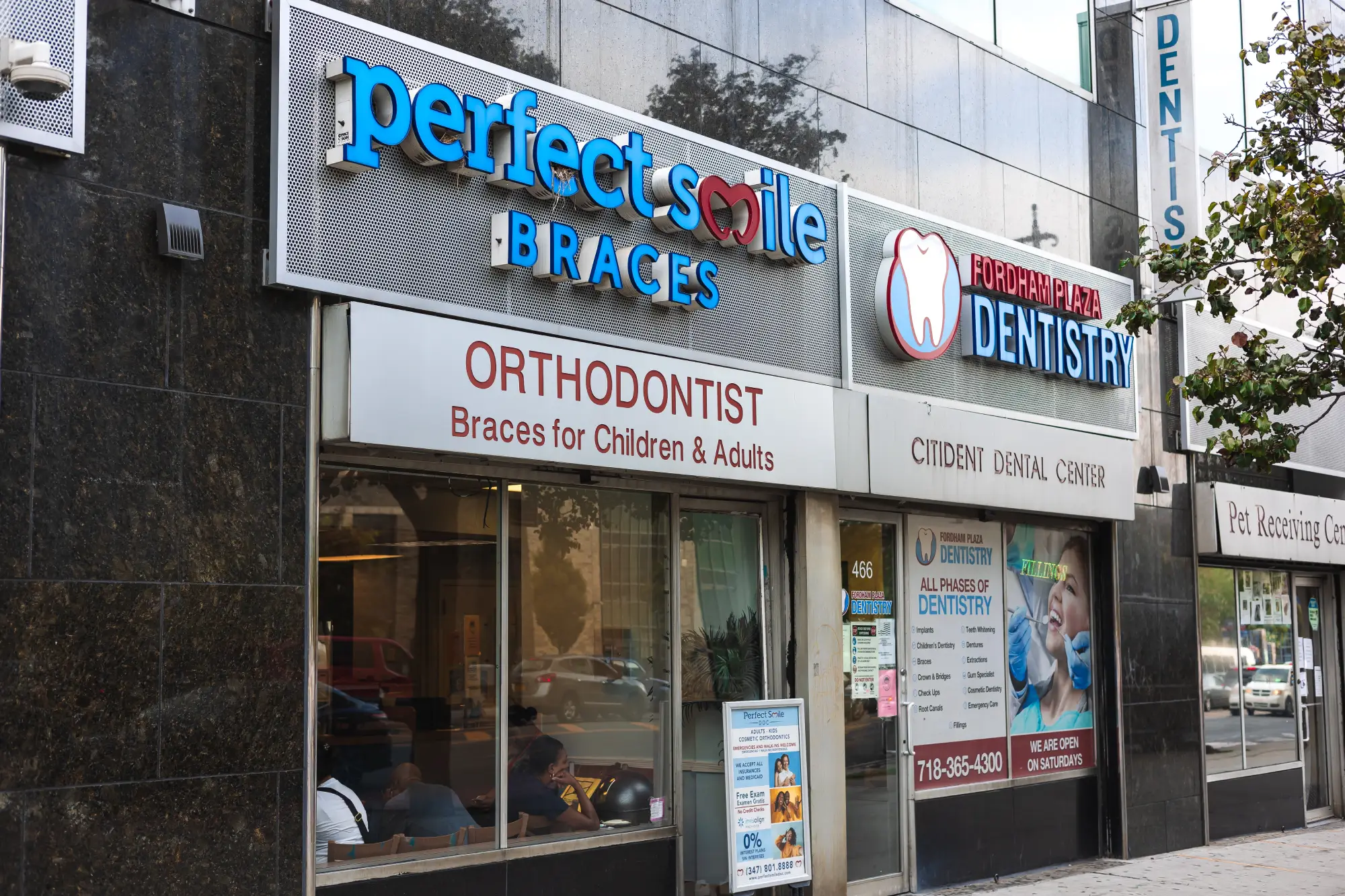
468 E FORDHAM RD BRONX, NY 10458
MONDAY TO FRIDAY 9:00 AM – 6:00 PM
SATURDAY 8:00 AM – 2:30 PM
B
D
4
Bx12
Bx12+
Bx9
Bx15
Bx17
Bx22
Bx41
Bx34
Bx1
Bx2
BxM4
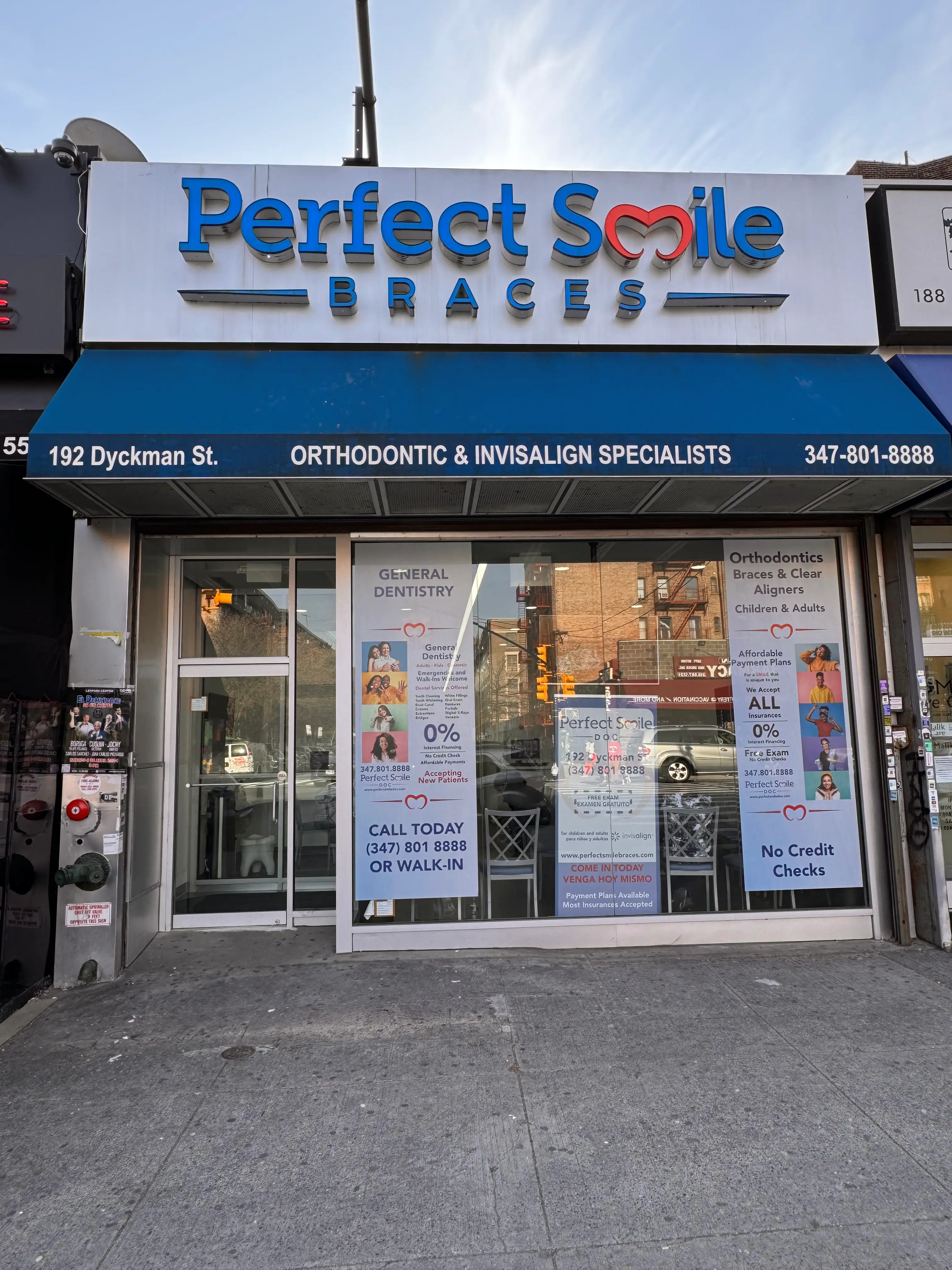
192 Dyckman St New York, NY 10040
MONDAY TO FRIDAY 9:00 AM – 6:00 PM
SATURDAY 8:00 AM – 2:30 PM
A
1
M100
Bx7
BxM1
Bx12
Bx12-SBS
Bx20
M3


